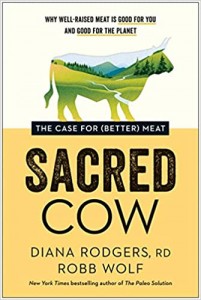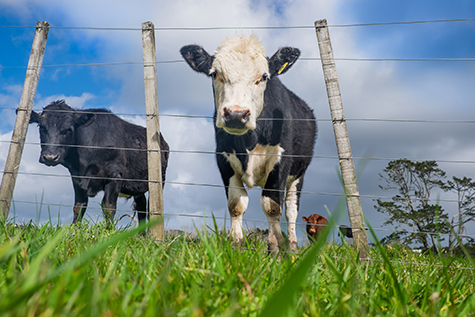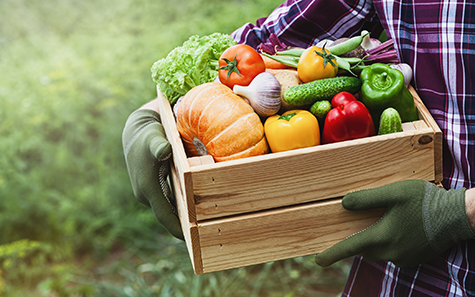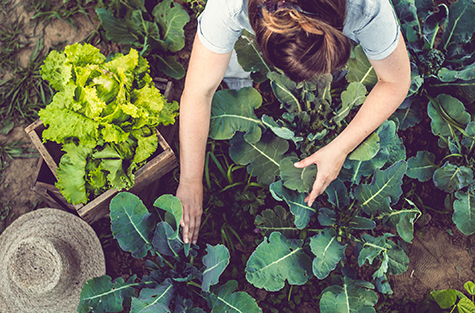Making the Case For (Better) Meat

We’re told that if we care about our health—or our planet—eliminating red meat from our diets is crucial. That beef is bad for us and cattle farming is horrible for the environment. But science says otherwise.
 Beef is framed as the most environmentally destructive and least healthy of meats. We’re often told that the only solution is to reduce or quit red meat entirely. But despite what anti-meat groups, vegan celebrities, and some health experts say, plant-based agriculture is far from a perfect solution. In Sacred Cow: The Case For (Better) Meat, registered dietitian Diana Rodgers and former research biochemist and New York Times bestselling author Robb Wolf explore the quandaries we face in raising and eating animals—focusing on the largest (and most maligned) of farmed animals, the cow.
Beef is framed as the most environmentally destructive and least healthy of meats. We’re often told that the only solution is to reduce or quit red meat entirely. But despite what anti-meat groups, vegan celebrities, and some health experts say, plant-based agriculture is far from a perfect solution. In Sacred Cow: The Case For (Better) Meat, registered dietitian Diana Rodgers and former research biochemist and New York Times bestselling author Robb Wolf explore the quandaries we face in raising and eating animals—focusing on the largest (and most maligned) of farmed animals, the cow.
Taking a critical look at the assumptions and misinformation about meat, Sacred Cow points out the flaws in our current food system and in the proposed “solutions.” Inside, Rodgers and Wolf reveal contrarian but science-based findings, such as:
- Meat and animal fat are essential for our bodies.
- A sustainable food system cannot exist without animals.
- A vegan diet may destroy more life than sustainable cattle farming.
- Regenerative cattle ranching is one of our best tools at mitigating climate change.
Eat Like A Nutrivore:
There isn’t just one specific macronutrient ratio, ideal food, or way of eating for all humans. Many people can benefit from eating fewer calories and processed foods and incorporating healthy animal products in the form of meat, eggs, or dairy. Although the idea of this, similar to a Paleo diet, was to focus on the most nutrient-dense foods available to us in our modern world, the image of cavemen and a false image of a “meat-only” diet seems to have turned some people off. Prioritizing protein while keeping micronutrients high and overall calories in check is a great way to eat. Their advice includes:
- Protein: high-quality protein from animals
- Fat: Avocados, egg yolks, fatty meat, ghee, tallow, bacon fat, olive oil, coconut oil
- Vegetables: Locally grown, organic, the darker the color, the more nutrient dense; asparagus, broccoli, spinach, kale, watercress, sauerkraut, chard, red bell peppers
- Fruits: Local, organic, season, low sugar
- Herbs and spices: Fresh, organic; basil, cilantro, tarragon
- Salt: sea salt
- Nutrivore-approved condiments: no-sugar-added, mayo, Primal Kitchen brand
What To Avoid:
- Limit nuts and seeds since they are calorically dense and easy to eat in excess; sweeteners; condiments with sugars and additives; flours; grains and legumes; dairy.
You’ll also find practical guidance on how to support sustainable farms and a 30-day challenge to help you transition to a healthful and conscientious diet. With scientific rigor, deep compassion, and wit, Rodgers and Wolf argue unequivocally that meat (done right) should have a place on the table.


